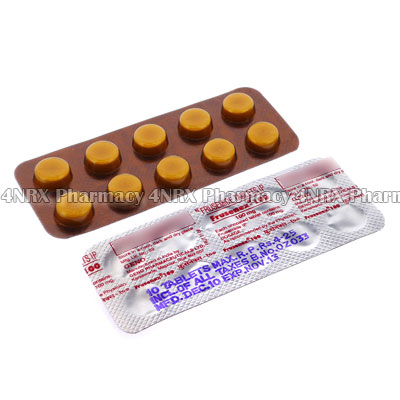 |
Home  General Health General Health  Frusenex-100 (Frusemide) Frusenex-100 (Frusemide) |
|
|||||||||
|
|
Frusenex-100 (Frusemide)
What is Frusenex-100 (Frusemide) used for? Frusenex-100 (Frusemide) is an oral diuretic prescribed to treat patients with edema. It operates by preventing sodium absorption in the kidneys to draw excess water out of the body to be eliminated. This may occur as a result of heart failure, liver cirrhosis, or kidney failure. Your physician may also prescribe it for other unlisted purposes, as well. How should I use Frusenex-100 (Frusemide)? Follow your physician's directions while using Frusenex-100 (Frusemide) to get the most effective results from treatment. The normal dosage is one tablet taken once or twice daily, but your individual instructions will depend on your weight, age, health condition, and the severity of your symptoms. The tablets should be swallowed with a large glass of water and may be taken on an empty stomach. It is not recommended to take the dose within four hours of bed time as increased urination may cause sleep disturbances. You are also suggested to increase your water intake to prevent dehydration. Ask your physician any questions you have about the medication to ensure the correct usage. What are the side effects of Frusenex-100 (Frusemide)? Side effects that may occur while using Frusenex-100 (Frusemide) include:
Immediately inform your physician if you experience more serious side effects such as severe headaches, intense stomach pain, vomiting, low calcium levels, low potassium levels, sensitive skin, easier bruising, unusual weight loss, tinnitus, or a severe skin rash. These conditions may require lower doses, reduced frequency of administration, or emergency medical attention in some cases. Please Note Do not use Frusenex-100 (Frusemide) if you are breastfeeding, allergic to sulphonamide medications, or if you have low sodium levels, low potassium levels, dehydration, poor circulation, hepatic encephalopathy, or kidney failure. Also inform your physician if you are elderly or have diabetes, gout, an enlarged prostate, hypotension, difficulty passing urine, low amounts of protein in the blood, decreased liver function, or decreased kidney function. These conditions may cause problems during treatment requiring adjustments to your regimen to prevent further complications from occurring. Strictly follow all instructions provided to you by your physician or pharmacist while using Frusenex-100 (Frusemide). Optimum and safe dosage can differ based on the patient and the condition being treated. As this medication may be unsafe for certain patients, it is essential you always inform your physician if you are pregnant or breastfeeding, as well as if you have any allergies, other illnesses, or ongoing health conditions, and if you are taking any other form of medication, supplements, or herbal products. Immediately seek emergency medical care if you have an allergic or hypersensitive reaction. Common signs of a reaction include hives, swelling, skin rashes, chest pains, as well as trouble breathing or swallowing. 

|
||||||||||||||||||||||